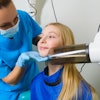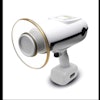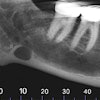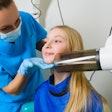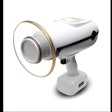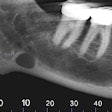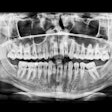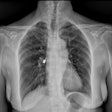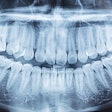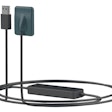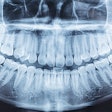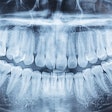
If you are in tune with hygiene department profitability information, you know the goal for any hygiene department is to produce 30% to 33% of a practice's total production. The challenge is the math.
Simply focusing on prophies and x-rays every six months is not going to get any hygiene department to their business goal. A comprehensive approach to perio that includes auxiliary services must be implemented within the practice.
10 areas to focus on
Beyond the aforementioned focus on cleaning and imaging, a hygiene practice can focus on 10 other areas to grow the practice:
 Jen Butler, MEd.
Jen Butler, MEd.- Hygienists can focus on oral healthcare assessments such as healthy history, dental charting, oral cancer screenings, periodontal assessment, biofilm assessment, saliva pH test, and smile analysis.
- They can review intraoral photos and x-rays to codiagnose. I tell my clients to make sure to use descriptive language when doing so.
- Hygienists can also perform nonsurgical periodontal procedures such as laser therapy.
- They can apply cavity preventive agents such as varnish and sealant.
- With training, hygienists can administer local anesthetic and nitrous oxide analgesia.
- If it fits with the practice's ethos, then a discussion and sale of home-care products can be had with patients. I recommend using the words "Research proves that ..." when talking about products.
- Hygienists can consider offering whitening and other cosmetic procedures.
- They can administer smoking cessation programs.
- Hygienists can counsel patients on good nutrition.
- They can also discuss caries management by risk assessment (CAMBRA) with patients.
3 common objections
When consulting with dental teams on creating a profitable hygiene department I hear some common objections from the hygienists and doctors. Here's how I respond to these objections.
1. If I do more, will I get paid more?
No, you will not. We don't get paid more because we stay fresh and modern with research in our industry. That's called staying relevant. We also don't get paid more for elevating our standard of care for patients. That's called doing our job.
2. Will I get more time to do more?
Not unless you absolutely need it. The focus is on removing nonproductive time and replacing it with clinical education that enhances care.
3. I don't want to sell to patients.
I tell them that they are not selling; they are educating patients on the benefits a comprehensive approach to oral healthcare brings.
Team approach
Finally, making the hygiene department profitable is a team approach in which every member understands the importance of these services as it relates to patient care. You can't simply leave it up to the hygienist to do all the work. Remember that hygiene products and services are equally important to a patient's care and the practice's overall business.
Jen Butler, MEd, is the CEO and founder of JB Partners. For business coaching and consulting, leadership, and stress management services, contact her at [email protected].
The comments and observations expressed herein do not necessarily reflect the opinions of DrBicuspid.com, nor should they be construed as an endorsement or admonishment of any particular idea, vendor, or organization.
